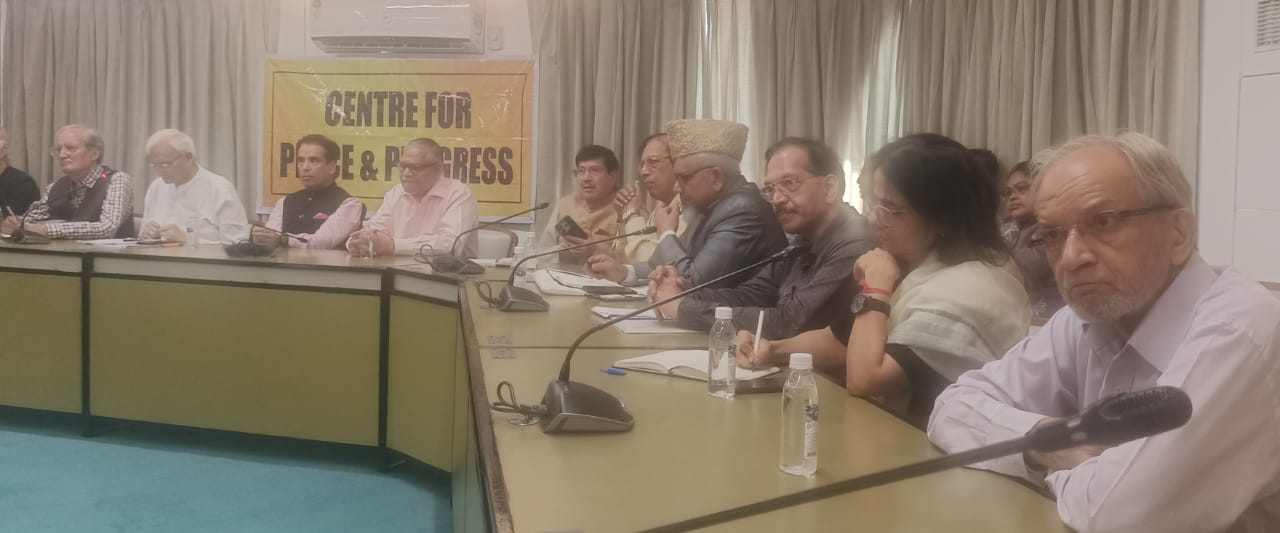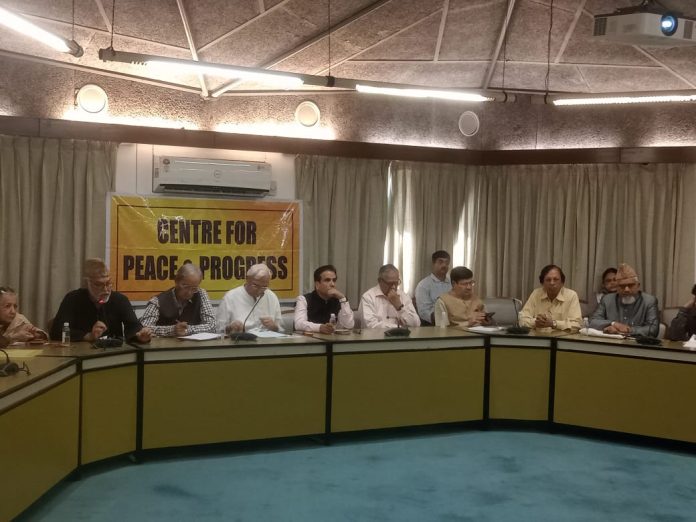– Mohd. Naushad Khan
New Delhi – Former Pakistan Foreign Minister Khurshid Mahmud Kasuri said the India-Pakistan ceasefire was a political decision, not just a military one. He was speaking virtually at a seminar on Saturday in New Delhi on India-Pakistan relations.
“We had a ceasefire because both governments had the common sense to decide that enough was enough,” Kasuri said. He credited top leadership over Director Generals of Military Operations (DGMOs). “It was the highest level of India and Pakistan that wanted the war to end.”
On U.S. President Donald Trump’s claims of mediation, Kasuri said such claims are overstated. “This wasn’t the first time. The US has intervened on at least five occasions—from Robert Gates and President Clinton to Colin Powell and President Obama,” he said. He suggested Trump’s involvement wasn’t unique.
Kasuri stressed the need for continued India-Pakistan engagement, especially through discreet channels. He backed back-channel diplomacy, particularly through National Security Advisors (NSAs) or trusted individuals. “If NSAs are not acceptable, someone with the confidence of both Prime Ministers should engage, with the sole purpose of preventing the next war,” he said.
From India, National Conference MLA Tanvir Sadiq acknowledged the deadlock in talks. “This may not be the ideal time for talks, but talks are absolutely necessary,” he said. He proposed third-party friends of both nations could help. “If you think India and Pakistan will just sit and talk—it won’t happen. Friends of both countries must bring them together,” said the Srinagar-based legislator.
Retired Air Vice Marshal Kapil Kak gave a blunt view of relations. He said both countries are “psychiatric states” full of illusions and mistrust. He called for “strategic psychiatrists” and “political archaeologists” to understand the deep-rooted conflict. Referring to the April 2025 border conflict that lasted 87 hours, he called for conflict-prevention dialogue first.
Kak stressed terrorism as a major hurdle, more harmful to Pakistan than India. He called for terrorism’s removal to allow progress. He appreciated the ceasefire and praised backchannel efforts.
Former Indian High Commissioner to Pakistan, TCA Raghavan, shared a historical view. He said the conflict is structural and persists despite leadership changes. “For 35 years, terrorism has been central to the problem. No formula can fully resolve it—you can only live with it or work around it,” he said. He recalled more clarity in Pakistan’s stance under former President Pervez Musharraf.

Pakistani diplomat Ashraf Jehangir Qazi expressed concern about worsening ties, worsened further by Operation Sindoor. Dialogue, once vital, is now viewed as controversial by governments, opposition, and the public. He warned of a disastrous second war between nuclear nations.
Qazi said entrenched hostile narratives and political unwillingness are major blocks. Even diplomats face limitations. He called for regional change, SAARC’s revival, and moving past zero-sum mindsets. He acknowledged India’s view of Pakistan as a failing state.
Mani Shankar Aiyar, former Union Minister, called for “uninterrupted and uninterruptible dialogue” with Pakistan. He cited PM Modi’s remark, “this is not an era of war,” and questioned Operation Sindoor’s continuation. He said India should apply the principles it promotes globally to its Pakistan policy.
O.P. Shah, Chairman of Centre for Peace and Progress, called the current situation the worst ever. He noted no high commissioners, minimal trade, and restricted people-to-people contact including medical travel. Shah said this is not the time to assign blame but to look for peace.
He urged dedicated individuals from both nations to come together for dialogue. He said peace would benefit the people of the subcontinent.
Former CIC and UGC member M.M. Ansari stressed dialogue despite tensions. He highlighted trade as key for economic growth. He warned that hardliners on both sides, including India’s right-wing and Pakistan’s military, benefit from hostility. These groups, he said, politicize conflict, especially during elections.
Jamaat-e-Islami Hind Vice-President Prof. Salim Engineer urged civil society, scholars, and citizens in both countries to press their governments for progressive and sincere talks.
Former Tribune editor Syed Nooruzzaman said terrorism and Kashmir are politically exploited. He blamed both establishments and India’s right-wing for misuse. He said the peace conference must stop such exploitation.
He linked South Asia’s poverty to the conflict and urged reviving SAARC. A strong peace process, he said, would help ease social and economic burdens.
The seminar ended with agreement on one point—sustained dialogue is essential to prevent future escalation.




